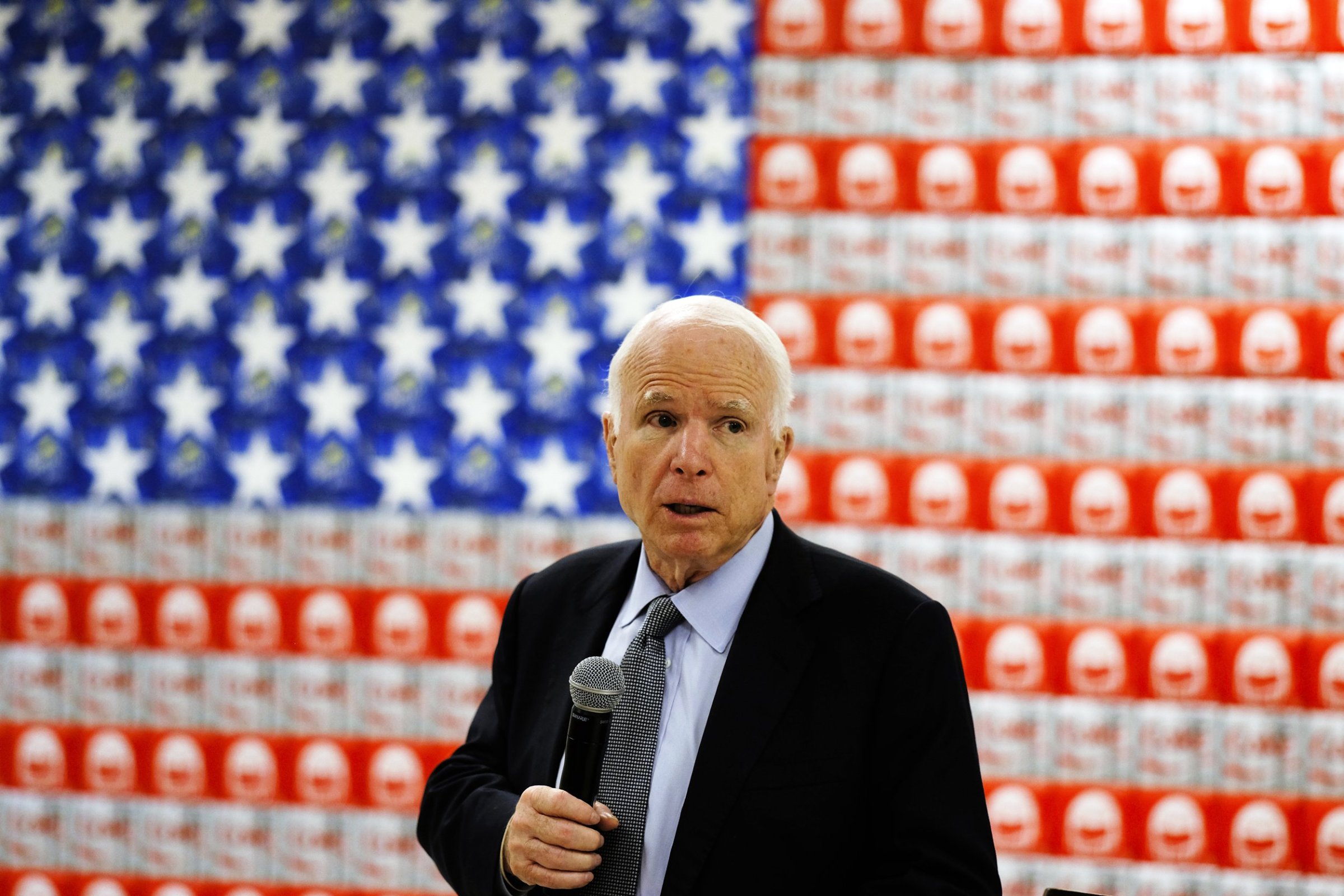
Just because it’s August and the lead up Labor Day weekend doesn’t mean that politics is totally asleep. On Tuesday, congressional primary voters in Arizona and Florida will head to the polls to pick their favorite candidates to run for Congress in November.
Congressional primaries are even smaller than presidential primaries with often only a couple thousand people swinging a vote, which makes them unpredictable. And primaries held after the national conventions are usually more subject to national trends. Indeed in the two races that matter most on Tuesday—the reelection bids of Arizona Sen. John McCain and Florida Rep. Debbie Wasserman Schultz—national figures loom larger than the candidates themselves; in McCain’s case GOP presidential nominee Donald Trump and in Wasserman Schultz’s case Bernie Sanders. That said, both incumbents are looking likely to win—at least this around.
McCain, who turned 80 on Monday, is looking for a sixth term and he looks likely to beat long shot primary opponent State Sen. Kelli Ward. But Trump is complicating this race. Not only did Trump question McCain’s status as a “war hero” because he had the misfortune of being imprisoned and tortured by the North Vietnamese, but for a couple of weeks this summer Trump also refused to endorse McCain. McCain, afraid of any weakness before his primary, where a small number of voters could make a big difference, is refusing to un-endorse Trump—as most of his former staff and friends have.
If McCain wins his primary, his support of Trump may not last long. By far his bigger worry in this race is Democratic challenger Rep. Ann Kirkpatrick in the general election. Kirkpatrick was within two points of McCain in a June poll and for all that McCain’s continued support of Trump helps him in his primary, it hurts him in a general election where the electorate could be as much as 30 percent Latino. Compounding this is Trump’s announcement this week that he plans to give a “major” immigration speech in Arizona on Wednesday, the day after the primary—probably not a speech McCain wants to attend as he tries to pivot to a general election stance that is more appealing to Latino voters.
Overall, Trump and Clinton are neck-in-neck in Arizona, usually a solid red state. Trump leads Clinton by two percentage points, according to a RealClearPolitics average of state surveys.
Meanwhile, in Florida Wasserman Schultz is facing a primary challenge from her left. The former Democratic National Committee chair was accused by erstwhile Democratic presidential candidate Bernie Sanders of rigging the system for Hillary Clinton.
Wasserman Schultz denied those charges, but stepped down in July after Russian hackers released thousands of internal DNC emails, many of them including anti-Sanders riffs. Sanders has endorsed her opponent Tim Canova. Canova has closed the gap with Wasserman Schultz, but still trails the six-term lawmaker, and the momentum is not on his side. Sanders’ strategist Tad Devine went down to Fort Lauderdale to work for Canova in July, but left less than two weeks later—perhaps a sign that the law professor isn’t quite yet ready for prime time.
In Florida, Clinton leads Trump by an average of 2.7 percentage points, according to a RealClearPolitics average of surveys in that state.
More Must-Reads from TIME
- Donald Trump Is TIME's 2024 Person of the Year
- Why We Chose Trump as Person of the Year
- Is Intermittent Fasting Good or Bad for You?
- The 100 Must-Read Books of 2024
- The 20 Best Christmas TV Episodes
- Column: If Optimism Feels Ridiculous Now, Try Hope
- The Future of Climate Action Is Trade Policy
- Merle Bombardieri Is Helping People Make the Baby Decision
Contact us at letters@time.com